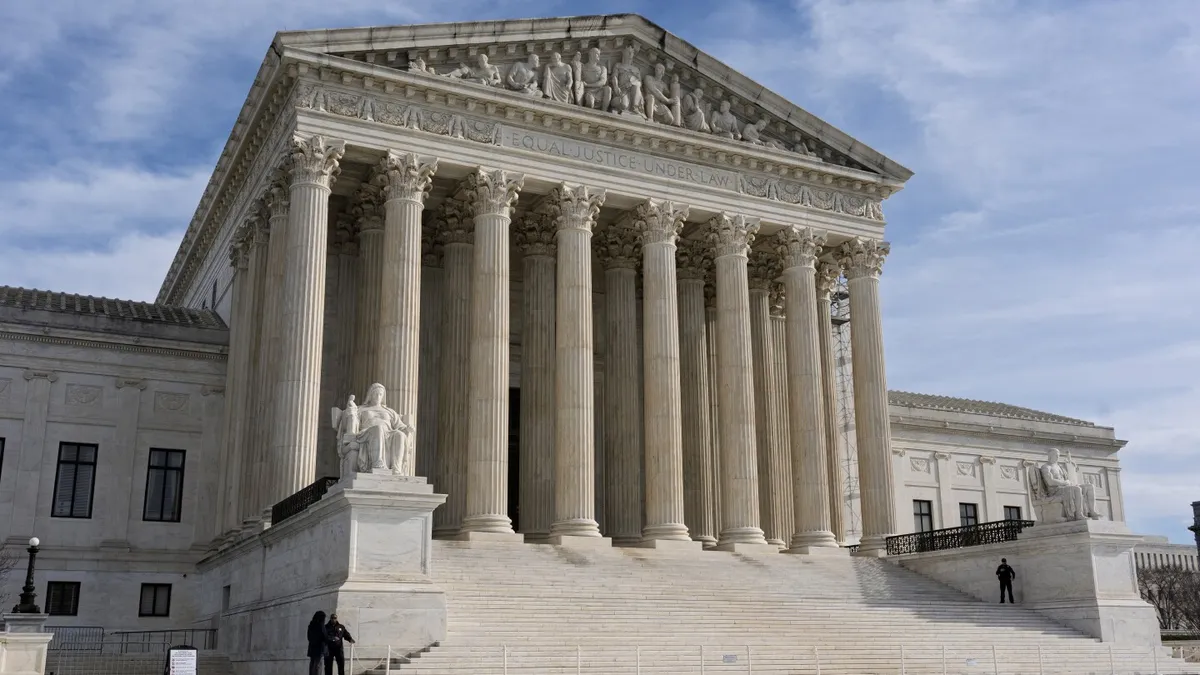
In a surprising move, the Supreme Court intervened in the immigration debate during the early hours of Saturday, blocking the Trump administration from deporting Venezuelans detained in northern Texas. Justice Samuel Alito, in a pointed dissent, criticized the court’s seven-member majority for acting "literally in the middle of the night" without providing adequate justification for their decision. This ruling directly impacts the ongoing legal battles surrounding the treatment of Venezuelan migrants under U.S. immigration laws.
The ruling came in response to an emergency appeal filed by the American Civil Liberties Union (ACLU), which argued that immigration authorities were poised to resume deportations under the Alien Enemies Act of 1798. This century-old law has only been invoked sparingly in U.S. history and was last used during World War II. Alito pointed out that the majority's decision lacked "dubious factual support," raising questions about the validity of the emergency request.
Justice Alito emphasized that both the Executive and the Judiciary have a responsibility to adhere to the law. He articulated concerns that the court's brief order failed to allow those facing deportation a chance to present their cases in court. The Supreme Court had previously stated that deportations could only proceed after individuals had a reasonable opportunity to contest their removals.
The justices' order specifically instructed the Trump administration not to proceed with the deportation of Venezuelans held at the Bluebonnet Detention Center until further notice from the court. Alito described the relief granted as "unprecedented" and asserted that it was given "hastily and prematurely." He raised concerns about the court's jurisdiction at this juncture, noting that the lower courts had not fully explored all legal avenues.
Alito pointed out that the only documents submitted to the court were from the applicants, and the court had not received any response from the government regarding the allegations or legal issues raised. He highlighted that a government lawyer had previously testified in a different case that no deportations were planned for the immediate future, contradicting the urgency of the ACLU's claims.
The Trump administration has since filed paperwork requesting the Supreme Court to reconsider its decision. On the preceding Friday, two federal judges declined to intervene in the case, while the 5th U.S. Circuit Court of Appeals also refused to protect the detainees from deportation. The ACLU's legal campaign aims to prevent the removal of Venezuelans, asserting that immigration authorities were wrongfully categorizing certain detainees as members of the Tren de Aragua gang, which would subject them to expedited removal under the Alien Enemies Act.
This law, used sparingly throughout American history, raises significant ethical and legal concerns, particularly in its application to immigrants. The last notable use resulted in the internment of Japanese-Americans during World War II. The current administration argues that the law enables them to swiftly deport individuals they suspect of gang affiliations, regardless of their immigration status.
The Supreme Court's late-night ruling has sparked intense debate regarding the balance of power between the Executive Branch and the Judiciary, particularly in matters of immigration enforcement. As this legal battle unfolds, the implications for Venezuelan migrants and the broader immigration landscape remain significant, highlighting the complexities of U.S. immigration policy and its historical precedents.